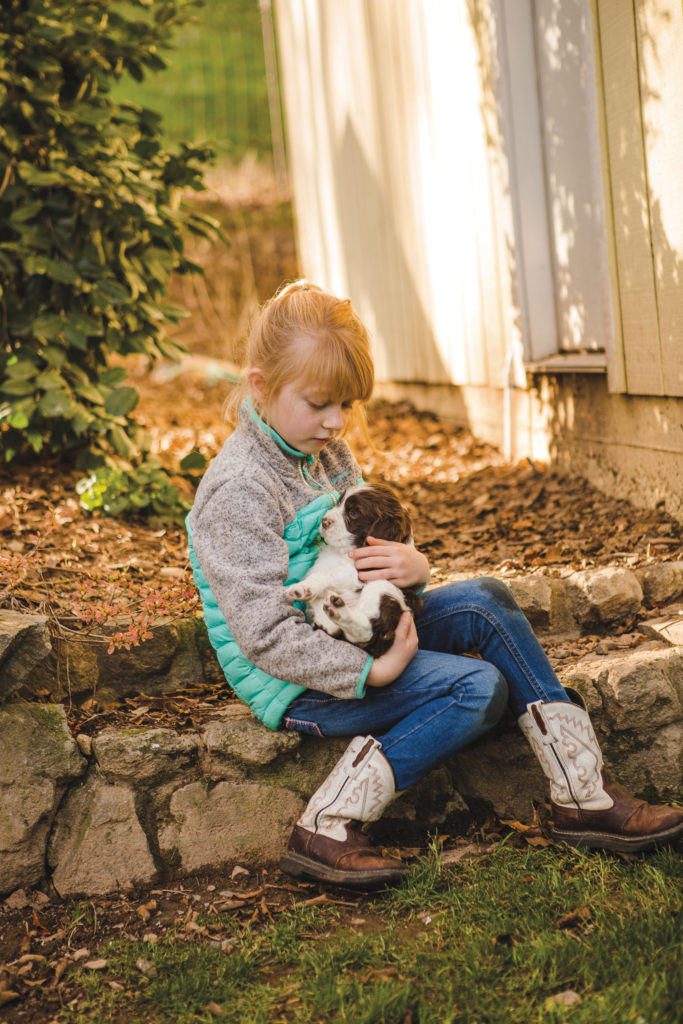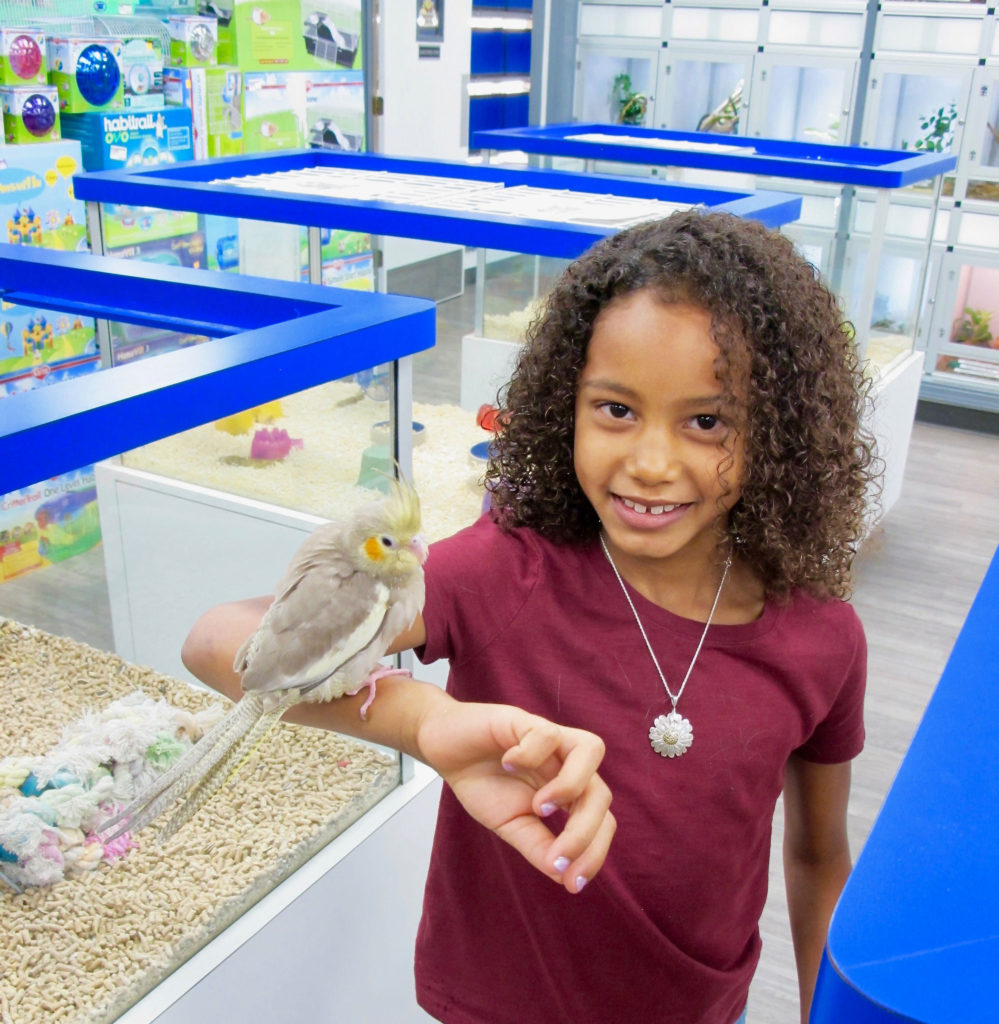 They’re cute and they’re cuddly, but how do you know what kind of pet would work best for your family? When deciding on the right pet for you, consider your family’s lifestyle, finances and personality.
They’re cute and they’re cuddly, but how do you know what kind of pet would work best for your family? When deciding on the right pet for you, consider your family’s lifestyle, finances and personality.
Choosing a pet shouldn’t be done on impulse
According to the American Academy of Child & Adolescent Psychiatry, raising children with pets can benefit a child’s self-esteem and self-confidence and can encourage compassion and empathy. But, unlike a sweater that you return if it doesn’t fit quite right, choosing a pet shouldn’t be an impulse buy.
According to Barbara Poe, manager of shelter operations and behavioral services at an animal shelter, 75 percent of the animals returned to the shelter result from families adding a pet to their households without considering the challenges. “This percentage rises when talking about the return of puppies. Puppies require a lot of time, socialization and training,” Poe says.
Are you home enough to give a lot of care and attention?
First, take a look at a typical day for your family to determine if you’re home enough to provide the care and attention a pet deserves.
“Kittens and puppies are like having an extra toddler in your house. They require a lot of supervision because they will chew on things, climb on things or get into things you don’t necessarily want them to or that might be harmful to them,” says Dawn Morgan, manager of volunteer and client services at an animal rescue organization.
While older dogs and cats may adjust better to a busy lifestyle, they still need exercise, playtime, training and grooming. Without enough exercise and social interaction, a bored, lonely dog may take out its frustrations and engage in destructive behaviors like chewing and digging.
Less demanding pets, like fish, might work better for families with hectic schedules. As with any pet, determine in advance how much you want your child to help, whether it’s with feeding or cleaning. Be prepared to enforce the rules and pick up any slack.
Consider the overall financial cost
Besides food, vaccinations, spaying or neutering and supplies, the scale slides wildly when considering the overall financial cost of a pet. Life expectancies vary and if your pet develops health problems, you’ll likely pay more for its care over the long haul than for an otherwise healthy animal. Also, if you choose a more exotic pet like a guinea pig, bird or a reptile, prepare to pay a little extra for a veterinarian who specializes in handling exotic animals.
Look for a pet that matches your personality
To ensure both the safety of your child and the welfare of the animal, understand the temperament of various types of animals.
“It’s really important when you think to bring a pet into your home that you look for a dog or cat that matches your personality and will fit into the dynamic of your family instead of just the one that is the cutest,” Morgan says.
If you’re adopting from a shelter, talk to the volunteer who walks and feeds the animals. This person usually spends the most time with individual cats and dogs and can talk to you about their personalities and which ones would do well in a home with children.
Among dogs, research breeds and mixes. While retrievers and labradors tend to be good family dogs, some families don’t realize how much exercise and attention these breeds require.
“Shy or timid kids are confusing to a dog. Dogs react differently to a shy, fearful behavior and may see it as a threatening behavior,” says veterinarian Dr. Andrea Ferrell. If you choose a puppy, enroll in a puppy training class to ensure that it learns to properly interact with people and to socialize with other dogs.
 Pocket pets are good “starter” pets
Pocket pets are good “starter” pets
Nicknamed “pocket pets,” animals like rabbits, guinea pigs and other small mammals make good first-time pets for children.
“I really like pocket pets for kids as a starter pet,” Ferrell says. “Most rabbits and guinea pigs are well-adapted to living with children…(and) can really get affectionate.” Purchase a young rabbit or guinea pig so that it grows accustomed to handling.
While they don’t require much in the way of exercise, rabbits and guinea pigs do enjoy social interaction and clean, indoor enclosures.
Birds and reptiles aren’t easy to care for or handle
Carefully research other small animals like birds, reptiles and amphibians before adding them to your family. Many of these animals are neither easy to care for nor to handle. Turtles, in particular, carry Salmonella bacteria on their shells, which can sicken a child still learning hand-washing hygiene.
When researching the right pet for you, talk to friends and family who own pets that you are interested in, your veterinarian or your local animal shelter. For more tips and information, visit http://www.veterinarypartners.com.
Posted in: Youth & Teen
Comment Policy: All viewpoints are welcome, but comments should remain relevant. Personal attacks, profanity, and aggressive behavior are not allowed. No spam, advertising, or promoting of products/services. Please, only use your real name and limit the amount of links submitted in your comment.
You Might Also Like...
North State Teens Give Back To Their Communities With Creativity, Hard Work & Love
Thomas W., Yreka Grace P, Chico Grace is 13 years old and is the president of CCC, a Chico club dedicated to educating others about climate change and doing everything […]

Summer Camps & Classes
After a year when your kids have missed social time with friends, the good news is that summer camp — during the day — is making a comeback in the […]

Rock Climbing Basics In The North State
Rock climbing is a growing sport in the US and with its introduction at the 2020/2021 Summer Olympics in Tokyo is now a major competitive sport. But many people also […]

A Blastoff Birthday Bash
Children love birthday parties that cater to their special interests and parents often have a lot of fun planning a themed bash. This year, while homing in on a birthday […]




